Solving Skill

How can I develop better number sense and estimation skills for problem-solving ?
Number sense is a crucial skill for effective problem-solving, involving an intuitive understanding of numbers and their relationships. It's important for efficiency, flexibility, and confidence in handling numerical tasks. To improve your number sense and estimation skills, practice rounding and estimating, use benchmark numbers, work with different representations, engage in mental math exercises, analyze mistakes, and seek out challenging problems. Consistent practice and real-world applications are key to developing a more intuitive understanding of numbers and enhancing problem-solving abilities.

How do project-based learning and problem-solving activities fit into innovative teaching methodologies ?
Innovative teaching methodologies emphasize project-based learning (PBL) and problem-solving activities to engage students, foster critical thinking, and develop practical skills. PBL involves students in complex, meaningful projects that connect classroom learning with real-world scenarios, promoting deeper understanding, skill development, and motivation. Problem-solving activities challenge students to identify issues and find effective solutions, enhancing their critical thinking, decision-making, and resilience. Integrating PBL and problem-solving into innovative teaching involves identifying key concepts, designing relevant projects, incorporating problem-solving elements, providing resources, facilitating collaboration, scaffolding instruction, reflecting and evaluating, and assessing holistic performance. This approach creates a dynamic learning environment that prepares students for future challenges and fosters a love of lifelong learning.

How can mind mapping improve creativity and problem-solving skills ?
Mind mapping is a tool that enhances creativity and problem-solving skills by providing a visual way to organize information. It stimulates brainstorming, enhances visualization, and promotes collaboration for creative thinking. Mind mapping also aids in problem-solving by identifying core issues, providing clarity and focus, and facilitating decision making.

What are some effective strategies for solving algebra problems ?
In the article, "Effective Strategies for Solving Algebra Problems," the author outlines a five-step process to solve algebra problems effectively. First, read and understand the problem, identify unknowns, and visualize it. Second, plan an approach by selecting a strategy, breaking down complex problems, and estimating answers. Third, execute your plan by writing equations, simplifying them, and solving for variables. Fourth, check your work by substituting back into the original equation, evaluating estimations, and looking for errors. Finally, review and reflect on your steps, strategies used, and practice similar problems to solidify understanding. Following these strategies can increase confidence and success in solving algebra problems.

Does exercise influence executive functions, such as decision-making and problem-solving ?
Exercise has a positive impact on executive functions, including decision-making and problem-solving. Regular physical activity can enhance cognitive functioning, risk assessment, self-control, creative thinking, working memory, and attention, leading to improved performance in these areas. Incorporating exercise into your lifestyle can benefit both your physical and cognitive health.
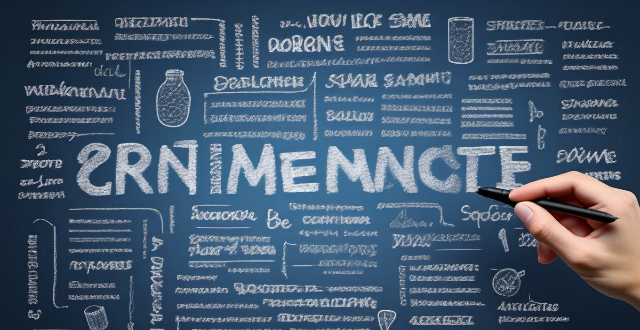
What steps should I follow when solving a word problem in mathematics ?
Solving word problems in mathematics can be challenging, but by following a step-by-step approach, you can simplify the process and increase your chances of finding the correct solution. The first step is to read the problem thoroughly, identifying all relevant information and understanding what is being asked. Next, plan your approach by deciding on a strategy, breaking down the problem into smaller parts if possible, and drawing a diagram to visualize the problem. After that, solve the problem by writing down the equations or expressions you will use, solving them step by step, and checking your work to make sure your answer makes sense and satisfies the original conditions of the problem. Finally, write your answer in a clear and concise manner, explain how you arrived at it if necessary, and check your work again to make sure you didn't make any careless mistakes. By practicing these steps, you should be able to solve most word problems in mathematics.

Can nutrition affect an athlete's skill level ?
Nutrition is vital for athletes' overall well-being and performance, including skill enhancement, recovery, and injury prevention. It affects cognitive function, physical performance, and recovery, ultimately influencing an athlete's skill level. A balanced diet with proper nutrients can help athletes reach their full potential and succeed in their sports.

Can playing multiple sports help in skill development ?
Participation in multiple sports can enhance overall athleticism and skill development by improving physical attributes, reducing injury risk, developing transferable skills, and promoting mental toughness. It also offers social benefits such as expanded networks and increased opportunities for exposure. While specialization has its advantages, playing multiple sports can help athletes become well-rounded competitors.

What resources are available to help me practice and master math problem-solving ?
To master math problem-solving, various resources are available, including online platforms like Khan Academy and Mathway, books such as "How to Solve It" by Polya, and video tutorials from YouTube channels like Numberphile. Practice worksheets from websites like Math Drills and IXL Math can also aid in skill development. Regular and consistent use of these resources can enhance one's ability to solve complex math problems and build a strong mathematical foundation.

How important is rest and recovery in skill enhancement ?
The text discusses the importance of rest and recovery in the process of skill enhancement. It highlights the cognitive and physical benefits of taking breaks, such as improved mental clarity, memory consolidation, muscle recovery, and injury prevention. The practical implications include avoiding burnout, enhancing performance, and strategies for incorporating rest into practice schedules. Overall, the text emphasizes that rest is a crucial component of long-term skill development and should be given equal consideration alongside deliberate practice and training regimens.

How can team sports help in individual skill development ?
Team sports contribute significantly to individual skill development by improving communication skills, enhancing leadership abilities, increasing self-confidence, bettering time management, improving social skills, promoting physical fitness and coordination, providing opportunities to learn from mistakes, and fostering adaptability.

How do I choose a tennis training camp that fits my skill level ?
Choosing a tennis training camp that fits your skill level can significantly improve your game. Here are some tips on how to select the right camp: 1. Assess your current skill level by considering your experience, strengths and weaknesses, and fitness level. 2. Research different camps that offer programs specifically designed for your skill level using online directories, social media groups, and reviews from previous attendees. 3. Check the coaches' qualifications and experience, including their credentials, coaching philosophy, and track record of working with players at your skill level. 4. Consider the quality of the camp's facilities and amenities, such as well-maintained courts, access to equipment, and onsite amenities like locker rooms and dining areas. 5. Evaluate the camp's reputation and success rate by reading reviews, asking for referrals, and contacting the camp directly to learn more about their success stories.

Is speed reading a natural ability or a skill that can be learned ?
Speed reading is a topic of interest for many individuals who wish to improve their reading efficiency and comprehension. The question arises whether speed reading is a natural ability that some people possess, or if it is a skill that can be learned and developed through practice and training. While there may be some individuals who possess a natural ability for speed reading, it is generally accepted that speed reading is a skill that can be learned and improved upon through practice and training. By employing specific techniques and strategies, anyone can enhance their reading speed and comprehension, ultimately increasing their productivity and knowledge acquisition.
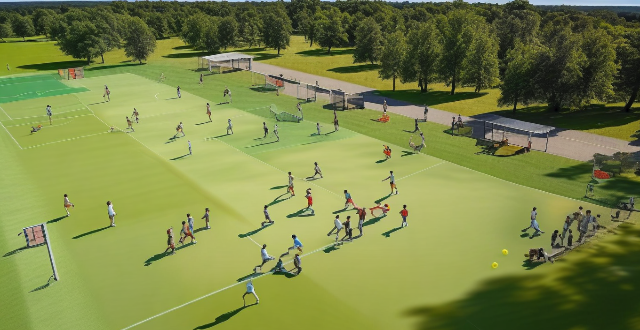
What is the influence of sports on leadership skills development among adolescents ?
This article discusses the influence of sports on leadership skills development among adolescents. It highlights the importance of leadership skills and how sports can contribute to their development through communication, problem-solving, decision-making, teamwork, and self-motivation. The article concludes that sports have a significant impact on the development of essential leadership qualities that are important for success in various aspects of life.

What is the impact of sports programs on the leadership development of students ?
Sports programs in educational institutions have a profound impact on the leadership development of students. These programs provide opportunities for students to develop essential leadership skills such as teamwork, communication, decision-making, and problem-solving. In this article, we will discuss the various ways in which sports programs contribute to the leadership development of students. One of the most significant benefits of participating in sports programs is the opportunity to work with others towards a common goal. This experience teaches students how to collaborate effectively, communicate clearly, and support their teammates. These skills are essential for successful leadership, as leaders must be able to work collaboratively with their team members to achieve their objectives. Participating in sports programs also helps students develop strong communication skills. Athletes must be able to communicate effectively with their coaches, teammates, and even opponents during competitions. This experience teaches students how to convey their thoughts and ideas clearly and persuasively, which is an essential skill for leaders. Sports programs also provide opportunities for students to develop decision-making and problem-solving skills. Athletes must make split-second decisions during games and matches, often under pressure. This experience teaches students how to analyze situations quickly and make informed decisions based on the available information. Finally, sports programs teach students how to set goals and work towards achieving them. Athletes must set personal and team goals, create plans to achieve them, and track their progress along the way. This experience teaches students how to set realistic goals, develop strategies to achieve them, and persevere through challenges. In conclusion, sports programs have a significant impact on the leadership development of students. By providing opportunities for teamwork, communication, decision-making, problem-solving, and goal setting, sports programs help students develop essential leadership skills that they can apply in other areas of their lives. As educators and parents, it is our responsibility to encourage our children to participate in sports programs and support their growth as leaders both on and off the field.

How do extracurricular activities contribute to the development of student leaders ?
**The Role of Extracurricular Activities in Nurturing Student Leaders** **Skill Development:** Extracurricular activities offer a platform for students to acquire and refine various skills, such as communication, teamwork, time management, and problem-solving. **Confidence Building:** Involvement in extracurricular activities often leads to increased self-assurance through taking initiative and overcoming challenges. **Interpersonal Abilities:** Engaging in extracurricular activities fosters key interpersonal abilities like networking, empathy, emotional intelligence, and influence. **Real-World Experience:** Extracurricular activities simulate real-world experiences where leadership is crucial, teaching organizational skills and adaptability. **Responsibility and Commitment:** Participation teaches responsibility and commitment through accountability and dedication to practice or training. **Conclusion:** Extracurricular activities serve as a laboratory for students to experiment with leadership styles, make mistakes, learn from them, and grow into well-rounded individuals ready to take on future challenges.
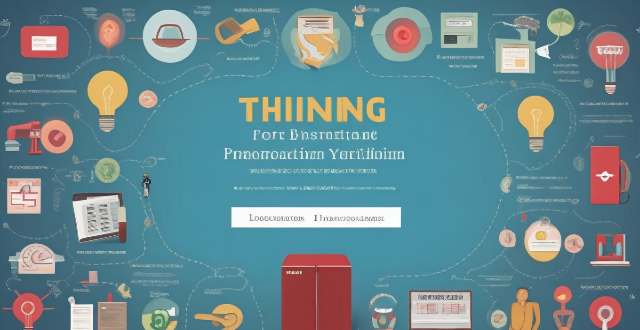
How does critical thinking training help in problem-solving ?
Critical thinking is essential for effective problem-solving. Training in critical thinking can improve problem identification, decision making, communication skills, creativity and innovation, and reduce bias and prejudice. By incorporating critical thinking training into your personal or professional development plan, you can become a more effective problem-solver and make a positive impact in your life and the lives of others.

How can I improve my problem-solving skills in geometry ?
Improving problem-solving skills in geometry involves understanding fundamentals, practicing regularly, analyzing mistakes, learning multiple solution methods, using visualization techniques, collaborating with peers, applying real-world scenarios, and staying updated with resources. Consistent effort and a proactive approach are key to success.

Is it necessary to have a strong math background to learn programming effectively ?
Is it necessary to have a strong math background to learn programming effectively? Programming is a complex field that involves various skills and knowledge. One of the most common questions asked by beginners is whether having a strong math background is necessary for effective learning of programming. In this article, we will explore this question in detail. Mathematics plays a crucial role in programming, especially in areas such as data analysis, machine learning, and game development. However, it is not absolutely necessary for all types of programming. For example, if you are developing simple web applications or writing scripts to automate tasks, a strong math background may not be required. If you plan to work in fields like data science or game development, then having a good understanding of mathematics can be very beneficial. If you feel that your math skills are lacking, there are several ways to improve them through online courses, reading books, practicing problem solving, and joining study groups. With dedication and effort, anyone can improve their math skills and become an effective programmer.
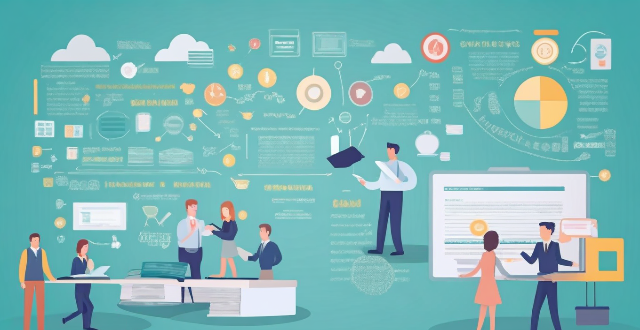
How does studying abroad impact a student's future career prospects ?
Studying abroad can significantly impact a student's future career prospects by enhancing cultural awareness, broadening educational horizons, providing professional advancement opportunities, and contributing to personal development. Students gain a global mindset, language skills, adaptability, and problem-solving abilities. They also benefit from academic rigor, research opportunities, independence, and confidence. Professionally, students expand their global network, gain employment advantages, and higher earning potential. Personally, they develop life skills such as time management and financial planning, along with cross-cultural competence and a desire for lifelong learning. Overall, studying abroad equips students with transferable skills that are highly valued by employers across various industries, positively influencing their career prospects.
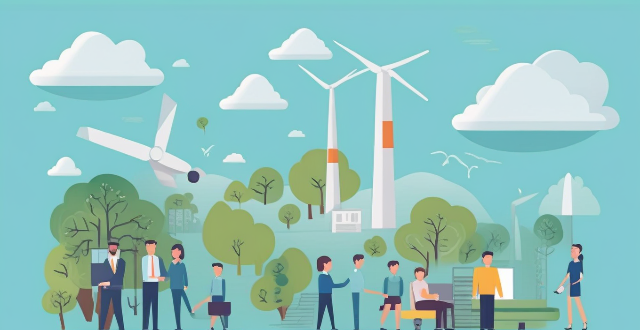
How has the Clean Energy Revolution affected the job market ?
The clean energy revolution has created new job opportunities across various sectors, including solar, wind, geothermal, hydropower, and bioenergy. The industry requires specialized skills in engineering, manufacturing, maintenance, sales, marketing, policy analysis, and advocacy. The clean energy revolution has also transformed existing industries by integrating renewable energy sources into their operations. The shift towards renewable energy sources is expected to continue, requiring individuals to acquire the necessary skills and knowledge to thrive in this rapidly evolving landscape.
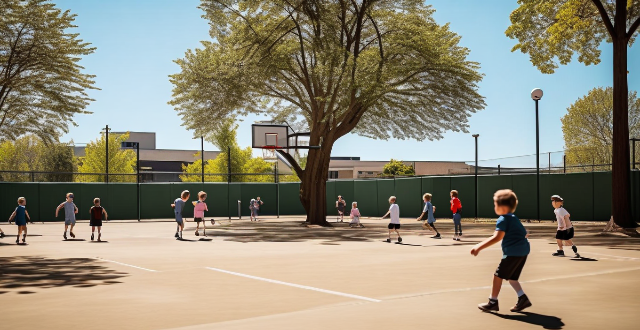
Are there specific sports that improve academic performance in children ?
The article discusses the potential benefits of different types of sports on academic performance in children. It highlights team sports like basketball, soccer, and volleyball for their ability to teach social skills, time management, and discipline. Individual sports such as swimming, tennis, and gymnastics are noted for promoting self-discipline, goal setting, and mental toughness. Outdoor sports like hiking, cycling, and rock climbing are mentioned for providing physical activity, stress relief, and exploration opportunities. The conclusion emphasizes the importance of considering individual differences among children when encouraging sports participation for academic improvement.

How can families handle conflicts that may arise from participating in sports together ?
Participating in sports together as a family can be a great way to bond and have fun, but it can also lead to conflicts. Effective communication, respect, compromise, problem-solving strategies, and seeking professional help are all important tools for resolving conflicts within families. By approaching conflicts as problems to be solved rather than battles to be won, families can find ways to work together more effectively and enjoy their time participating in sports together.

Can sports be used as a tool for personal growth and self-improvement ?
The text discusses the various ways in which sports can be used as a tool for personal growth and self-improvement. The author highlights the following aspects: - Mental toughness and resilience: Facing challenges and overcoming failure through sports can cultivate mental toughness and build resilience. - Teamwork and communication: Working together and effective communication are essential skills developed through team sports, which can enhance interpersonal relationships and group dynamics. - Discipline and time management: The structured approach required in sports can improve personal organization and time management skills, along with goal setting and strategic thinking. - Physical health and well-being: Sports contribute significantly to physical health by promoting fitness and endurance, and can also improve mental health by combating depression and anxiety. - Leadership and initiative: Sports provide opportunities for individuals to step up as leaders and develop problem-solving abilities, encouraging proactive behavior. - Self-confidence and self-esteem: Achieving mastery in sports can boost an athlete's confidence and self-esteem, fostering a positive self-image. - Adaptability and learning agility: Sports require athletes to adapt quickly to new tactics or game plans, encouraging a mindset of continuous learning that extends beyond the sporting realm. Overall, the text emphasizes that sports offer a comprehensive toolkit for personal development, encompassing benefits that extend far beyond the playing field. Engaging in sports can be a powerful catalyst for self-improvement and personal growth.
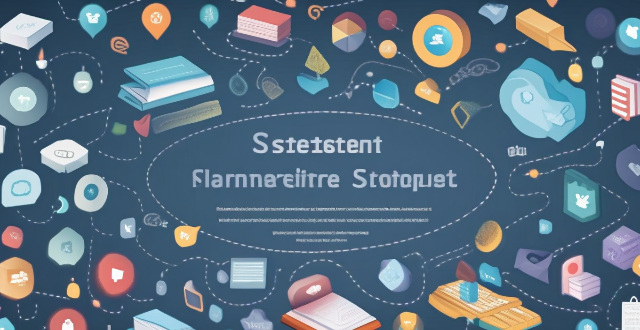
**Does Apple provide customer support for solving iCloud sync issues ?
Apple offers various support channels for solving iCloud sync issues, including a website with troubleshooting guides, online chat and phone support, in-person assistance at Apple Stores or authorized providers, email support, and community forums. These options ensure that users can find help suited to their preferences and needs.
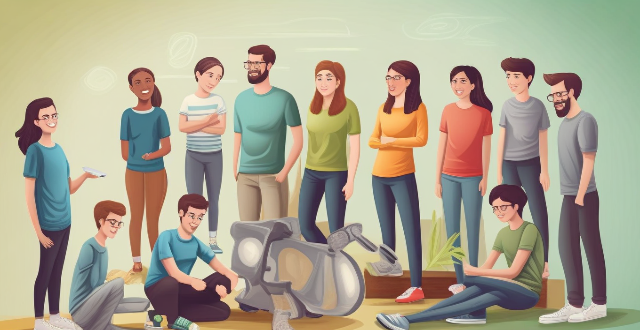
What role do teachers play in helping students prepare for academic competitions ?
Teachers play a pivotal role in preparing students for academic competitions by offering guidance, resources, skill enhancement, confidence building, practical application opportunities, and emotional intelligence development. They provide materials, help with time management, encourage critical thinking and research skills, offer positive reinforcement, facilitate networking, organize mock competitions, teach timed practice strategies, introduce stress management techniques, and emphasize teamwork and sportsmanship. This comprehensive support not only helps students succeed in competitions but also equips them with valuable lifelong learning skills.
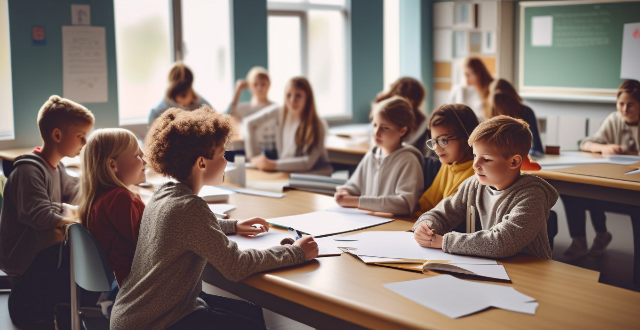
What are the benefits of fostering leadership in students from a young age ?
Fostering leadership in students from a young age has numerous benefits, including enhanced personal development, improved social skills, increased confidence, better academic performance, preparation for future roles, and a positive impact on society. Leadership training helps students develop valuable skills such as decision-making, problem-solving, time management, communication, collaboration, and empathy. These skills are beneficial in academic settings and personal lives, leading to well-liked and respected individuals. Taking on leadership roles also builds confidence and self-esteem, translating into other areas of life, including academic performance and future career prospects. Research shows that students with strong leadership qualities tend to perform better academically due to effective study habits, time management skills, and a strong work ethic. Fostering leadership prepares students for future roles in the workplace, community organizations, and political arenas, setting them up for success later in life. Developing strong leaders from a young age creates an engaged and active citizenry capable of addressing complex issues and working towards positive change.
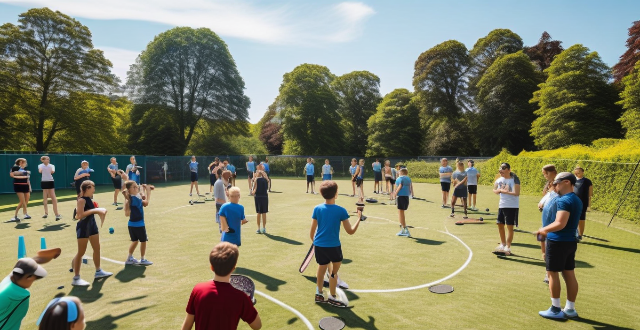
Can team sports or group exercises provide additional cognitive benefits compared to individual activities ?
Team sports and group exercises provide cognitive benefits such as improved social skills, enhanced cognitive functioning, increased self-esteem and confidence, and personal growth opportunities. Participating in these activities helps individuals develop strong communication skills, cooperation, conflict resolution abilities, attention and focus, decision making skills, memory retention, and a sense of achievement. These skills can be applied in all aspects of life, leading to personal growth and development.
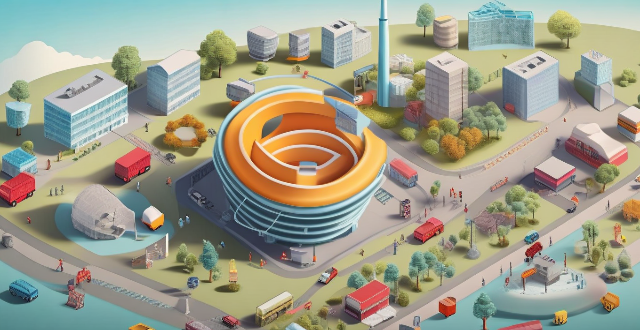
What are the benefits of international cooperation in solving global issues ?
International cooperation is vital for addressing global challenges, offering benefits such as pooled resources, enhanced security, sustainable development, scientific advancement, and fostering mutual understanding. By combining efforts, nations can achieve more significant progress towards peace, sustainability, and development than they could independently.

How does lifelong learning impact career development ?
Lifelong learning is a continuous process of acquiring new knowledge and skills that can significantly impact career development. It enhances skills, adaptability, creativity, personal growth, networking opportunities, and career longevity. By engaging in lifelong learning, individuals can stay relevant in their professions, adapt to changing job requirements, and increase their chances of career success.